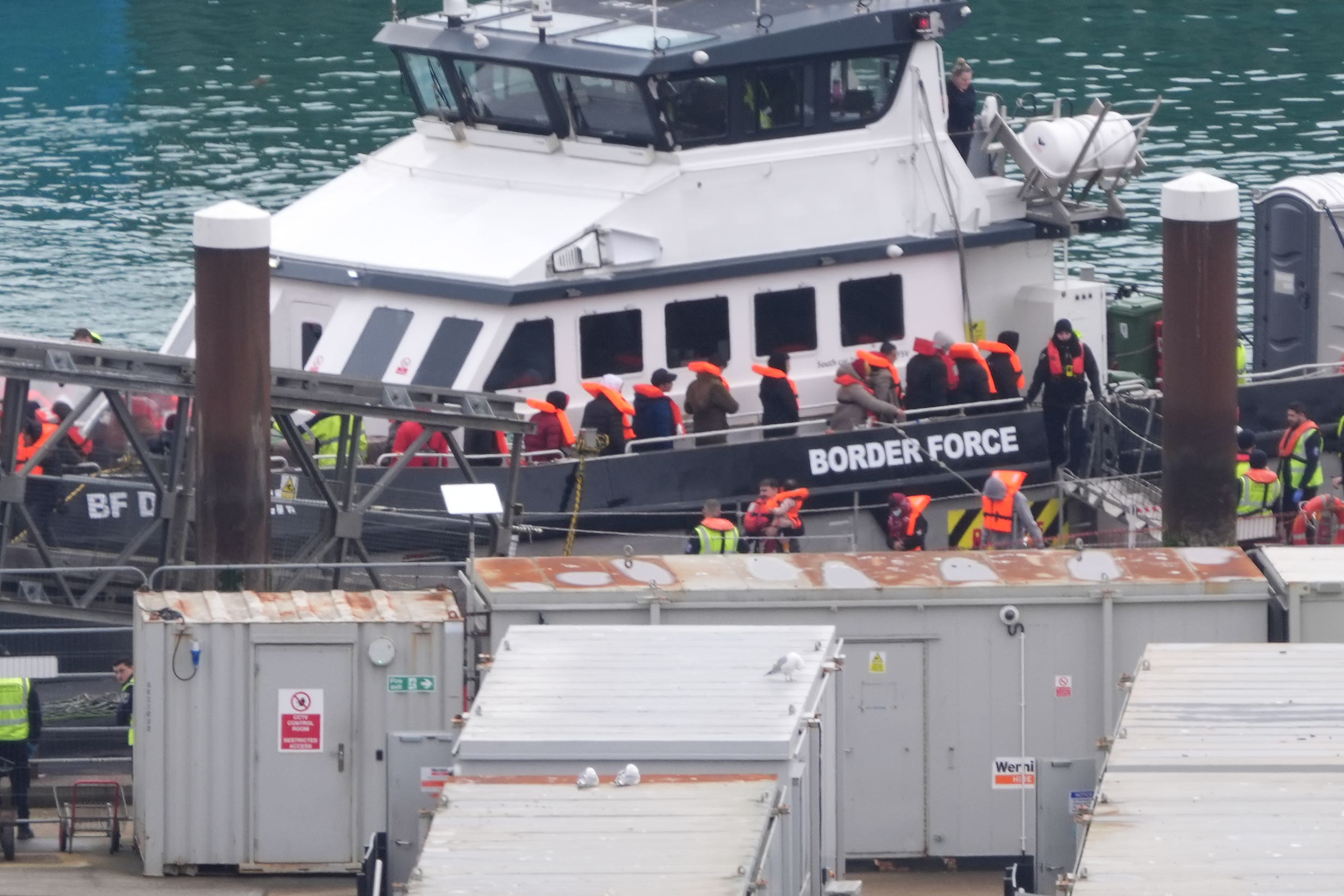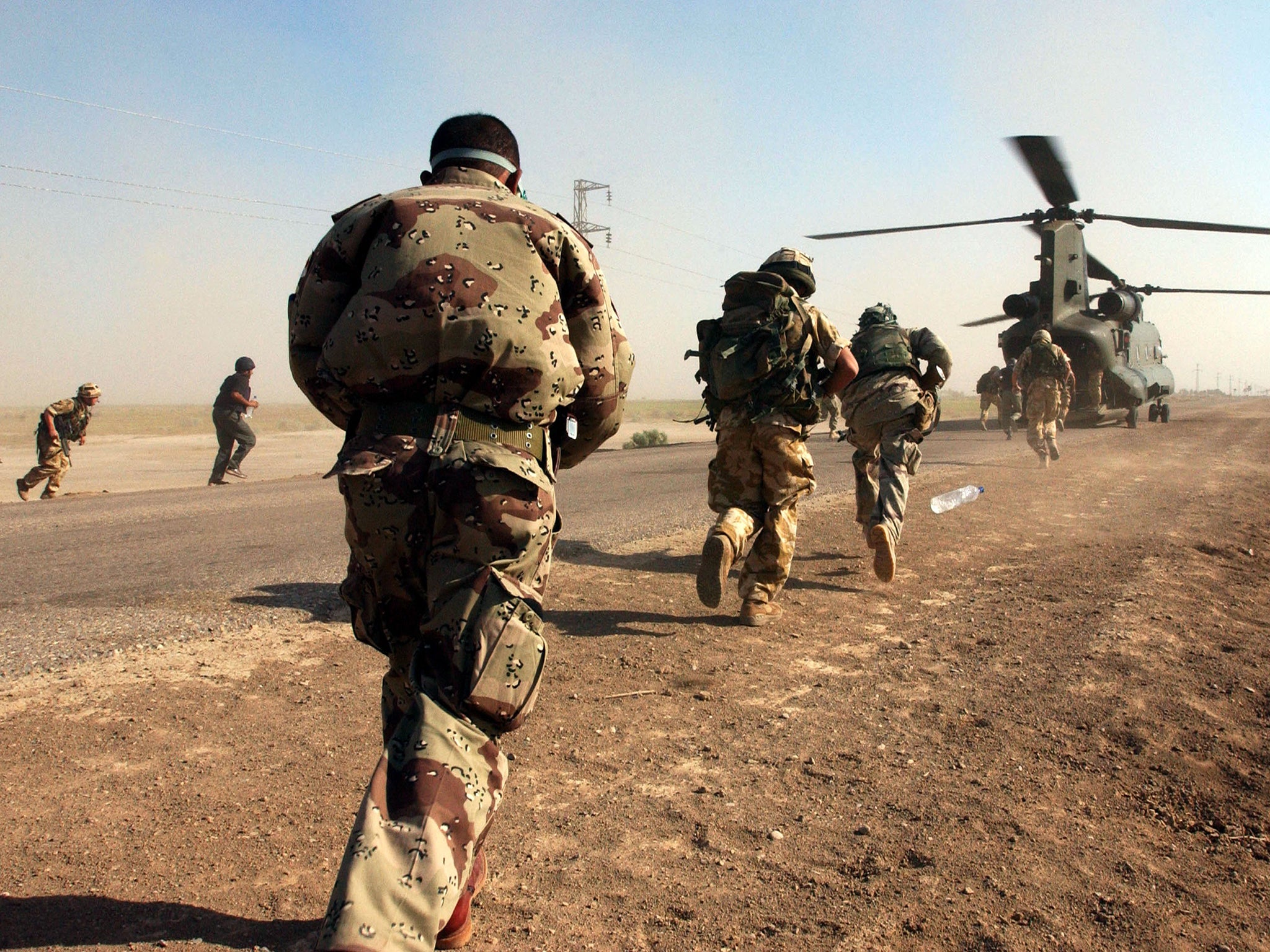The Rwanda bill explained: What is the controversial policy and what happens next?
Ministers have designed legislation to get round legal objections and say flights could take off within weeks – but a potential stumbling block remains
Your support helps us to tell the story
This election is still a dead heat, according to most polls. In a fight with such wafer-thin margins, we need reporters on the ground talking to the people Trump and Harris are courting. Your support allows us to keep sending journalists to the story.
The Independent is trusted by 27 million Americans from across the entire political spectrum every month. Unlike many other quality news outlets, we choose not to lock you out of our reporting and analysis with paywalls. But quality journalism must still be paid for.
Help us keep bring these critical stories to light. Your support makes all the difference.
In 2022, after the number of migrants crossing the English Channel to reach the UK rose steeply, then prime minister Boris Johnson announced that the government would send certain asylum seekers to Rwanda in east Africa.
The plan was that the government in Kigali would decide their claims and those that were successful would be granted asylum in that country instead of the UK.
In June that year, the first deportation flight to Rwanda was cancelled just minutes before take-off following a ruling by a judge at the European Court of Human Rights in Strasbourg.

A year later, the Court of Appeal ruled the policy was unlawful, with judges concluding that Rwanda was not a safe country.
Then last November, the Supreme Court, the UK’s highest court, also ruled the policy was unlawful and could not go ahead as it was, concluding there was a real risk that genuine refugees sent to Rwanda could be returned to their home country, where they would face “ill-treatment”.
In response, ministers published the Bill and a treaty with Rwanda, both of which are intended to prevent further legal challenges, but which were opposed by the Lords from the start.
The Safety of Rwanda (Asylum and Immigration) Bill compels judges to regard the country as “safe” and disapplies sections of the Human Rights Act and international law.
The legislation would also give ministers the power to ignore emergency injunctions.
Asylum-seekers could still challenge deportation based on their individual circumstances, such as serious mental or physical conditions, or if they are a victim of torture or if they are suicidal.
But they would not be able to make a generic argument that removal to Rwanda presented a general risk of “refoulement” – where asylum seekers are removed and returned to a country where they face persecution.

MPs on the right of the Tory party prioritise national sovereignty and a desire to “stop the boats”, which was one of Rishi Sunak’s declared five priorities when he became prime minister.
They say that reducing immigration, and particularly ending the scenes of asylum-seekers arriving on Kent’s beaches, will narrow Labour’s lead, and they want everything possible to be done to achieve that.
They point to the fact that the Rwandan government has pledged that migrants sent there will be granted the right to live in the country with the prospect of citizenship.
But those on the left of the party emphasise the rule of law and the UK’s international obligations such as the European Convention on Human Rights (ECHR). Supporters of Mr Sunak’s policy believe the UK should leave the convention.
However, a further obstacle for them is that the UK has signed up to the Refugee Convention, which asserts that a refugee should not be returned to a country where they face serious threats.
In February this year, Parliament’s Joint Committee on Human Rights said the proposed Rwanda law was “fundamentally incompatible” with the UK’s human rights obligations and would flout international law.
On Wednesday, the Lords resisted government attempts to override legal rulings and insisted on amendments to the Bill, including one to restore the jurisdiction of domestic courts in relation to the safety of Rwanda and enable judges to intervene. It means the Bill will now return to the Commons.
Peers also renewed their demand for the Bill to have “due regard” for international and key domestic laws, including human rights and modern slavery legislation.

In addition, they backed a requirement that Rwanda cannot be treated as a safe country until an independent monitoring body has verified that protections contained in the treaty are fully implemented and remain in place.
The Lords also voted that those who worked with the UK military or government overseas, such as Afghan interpreters, should be exempted from removal.
However, the legislation still stands a high chance of being passed within days.
Ministers have repeated that they remain confident that deportation flights will take off this spring, as Mr Sunak has long promised, although Treasury minister Laura Trott said there were “many definitions of spring”.
Under the new legislation, migrants will have seven days to appeal against any decision to send them to Rwanda. The Ministry of Justice will be obliged to provide them with duty immigration lawyers.
The appeals process could last up to nine days. The government reportedly expects about one in five cases to go on appeal to an upper immigration tribunal, which must determine each case within 22 days.
An extra 150 judges and dozens of duty lawyers are being recruited in an effort to hit the deadlines, according to The Telegraph.
The whole process could take between four and eight weeks. If the Bill is passed, that would mean that in theory the first flights could take off in early June.
But it’s possible that the European Court of Human Rights could again prove a stumbling block, if it orders flights be blocked, as it did in 2022 – sending government plans back to square one.
Subscribe to Independent Premium to bookmark this article
Want to bookmark your favourite articles and stories to read or reference later? Start your Independent Premium subscription today.

Join our commenting forum
Join thought-provoking conversations, follow other Independent readers and see their replies
Comments